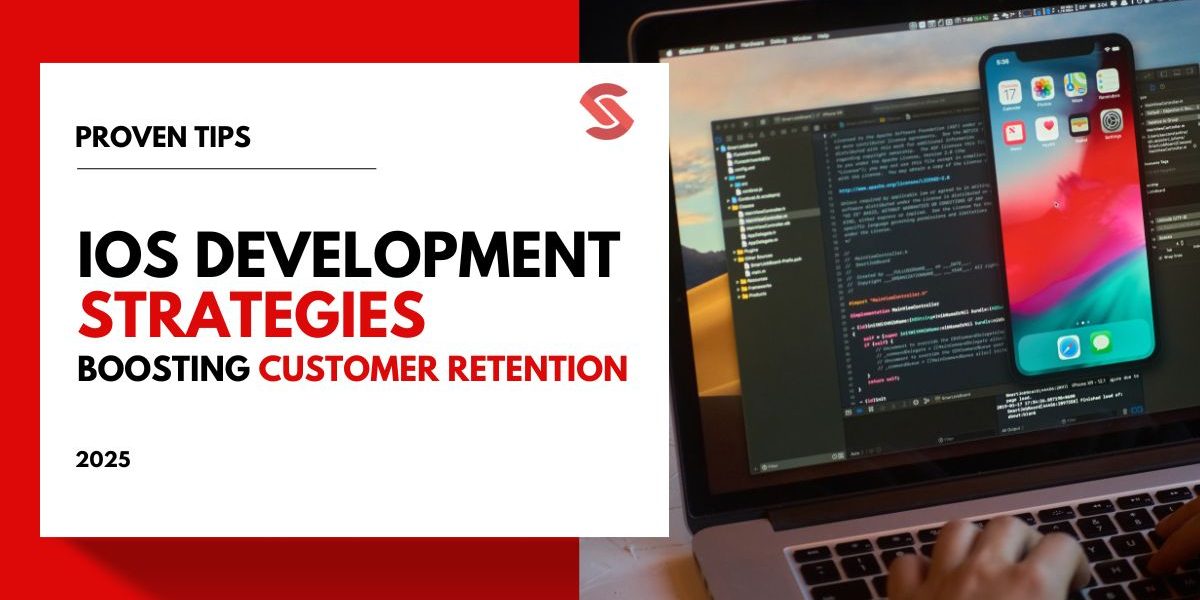Speech recognition technology, utilized in voice search, enables users to conduct searches verbally, reshaping B2B SEO strategies. This shift to conversational queries requires marketers to adapt. We’ll discuss its implications, importance, and effective optimization strategies for B2B businesses, focusing on understanding conversational queries and leveraging natural language processing (NLP) for enhanced SEO in the era of voice search.
The Basics of Voice Search in the B2B Market

Voice search transforms how digital interactions unfold, becoming pivotal for B2B companies aiming to enhance their online presence. This evolution turns search queries into conversational interactions, requiring a thoughtful strategic shift in B2B SEO approaches, including integrating specialized SEO services. This blog will cover voice search technology, its influence on user behavior, and strategies for integrating voice search into B2B SEO practices. You’ll gain insights into aligning your SEO efforts with the evolving voice search landscape.
Understanding Voice Search Dynamics

The Backbone of Voice Search: Technology and Trends
Voice search is powered by sophisticated technologies like speech recognition and natural language processing (NLP). These technologies enable devices to understand human speech, interpret its meaning, and deliver results that match the user’s intent. With the rising popularity of smart speakers and virtual assistants, voice search is becoming common for users to access information quickly and efficiently.
Deciphering User Behavior in Voice Search
User behavior in voice search differs significantly from traditional text-based searches. Voice queries are typically longer, phrased in natural language, and often framed as questions. This reflects a more conversational approach, where users expect direct answers to their queries.
Key aspects of user behavior in voice search include:
- Conversational Queries: Users treat voice search like a conversation, asking full questions as they would to a human.
- Specific Intent: Voice searches often indicate a clear intent, whether seeking information, finding a local business, or purchasing.
- Urgency and Convenience: Many users turn to voice search for quick answers, especially when multitasking or needing immediate information.
The User Journey in Voice Search
Understanding the user journey in voice search is crucial for B2B companies. This journey often begins with a need for specific information or a solution to a problem. The conversational nature of voice search means that users seek precise, easily digestible answers. B2B companies must ensure their content is optimized to meet these expectations, guiding potential clients smoothly from inquiry to solution.
To optimize for the user journey, consider the following:
- Answer Direct Questions: Structure your content in a way that provides clear and concise answers to commonly asked questions within your industry. Utilize FAQs or Q&A sections on your website to address these inquiries comprehensively and directly, ensuring that users find the information they need quickly and efficiently.
- Optimize for ‘Near Me’ Searches: If your B2B business serves local clients or has physical locations, it’s essential to include location-based keywords and phrases in your content. This optimization strategy can help your business capture ‘Near Me’ queries, ensuring that your company appears prominently in search results when potential clients are seeking nearby solutions or services
- Use Simple, Clear Language: When creating content for voice search optimization, prioritize simplicity and clarity in your messaging. Avoid using overly technical language, industry jargon, or complex sentences that may confuse or overwhelm users. Instead, strive for straightforward and easily understood language that resonates with your target audience, facilitating seamless communication and comprehension.
By tailoring your SEO strategy to accommodate these user behaviors and journey nuances, your B2B Company can enhance its visibility and accessibility in voice search results, ultimately fostering stronger connections with potential clients and driving business growth.
Advanced SEO Strategies for Voice Search

As voice search becomes more prevalent, B2B companies must refine their SEO strategies to stay ahead. This part of our blog will delve into advanced tactics to optimize your online presence for voice search, focusing on user intent, behavior, and the seamless journey from query to solution.
Semantic Search Optimization: Beyond Keywords

Voice search queries are conversational and nuanced, making semantic search optimization a key strategy. Here’s how to adapt:
- Understand User Intent: Analyze the types of questions your target audience asks. Are they seeking information, looking for services, or ready to purchase? Tailoring content to these intents enhances visibility.
- Create Comprehensive Content: Develop content that covers topics in depth, answering potential questions users might ask. Use natural language that mirrors how your audience speaks.
- Utilize Schema Markup: Implement schema markup on your website. This helps search engines understand the context of your content, making it more likely to be featured in voice search results.
Building Topical Authority
Establishing your site as a go-to resource for specific topics is crucial. Here’s how:
- Topic Clusters: By structuring content around central themes, you not only optimize for SEO but also enhance user experience, allowing for easier navigation through your site. This organization method helps users find relevant information quickly and improves the overall coherence of your content.
- Backlinking within Clusters: Creating internal links between pages within a topic cluster reinforces the interconnectedness of your content. This strategy signals to search engines the depth and comprehensiveness of your coverage on specific topics, thereby boosting your site’s authority and visibility.
Mobile and Local Optimization
Given the mobile nature of voice searches, optimizing for mobile and local searches is indispensable:
- Mobile-Friendly Websites: It’s imperative to ensure your website is responsive and loads swiftly on mobile devices. Given that voice searches are frequently conducted on smartphones and tablets, having a mobile-friendly site improves user experience and increases the likelihood of ranking higher in voice search results.
- Local SEO Practices: For B2B companies with a local presence, optimizing for local search is crucial. Incorporate location-based keywords into your content and ensure your business information is accurately listed in local directories. This enhances your visibility in ‘Near Me’ voice search queries, helping potential clients find your business more easily within their vicinity.
Tools and Metrics for Voice Search Optimization

Utilizing the right tools and tracking the right metrics is essential to optimize for voice search. This part will guide you through the tools that can help you fine-tune your strategy and the metrics to monitor your success.Essential Tools for Voice Search Optimization
Several tools can aid your optimization efforts:
- Keyword Research Tools: Utilize tools like AnswerThePublic to identify voice search-specific queries relevant to your business. These tools aggregate commonly asked questions and phrases, providing valuable insights into the types of queries users are voice-searching for. By leveraging such tools, you can tailor your content to address these specific inquiries, enhancing its relevance and visibility in voice search results.
- Content Optimization Tools: Leverage platforms such as SEMrush and Yoast SEO to optimize your content for voice search. These tools offer features that analyze the readability of your content and suggest improvements to ensure it aligns with natural language usage. By implementing their recommendations, you can enhance the conversational flow of your content, making it more suitable for voice search queries and increasing its chances of being surfaced by virtual assistants like Siri or Google Assistant.
- Local SEO Tools: Invest in tools like Moz Local to strengthen your local search presence and improve your visibility in ‘Near Me’ voice search queries. These platforms help you manage and maintain consistent business information across various online directories and platforms, ensuring that your business listings are accurate and up-to-date. By optimizing your local SEO efforts, you can increase your chances of being discovered by nearby customers searching for products or services like yours via voice search.
Tracking Success: Key Metrics
Monitoring the right metrics will help you understand the impact of your voice search optimization efforts:
- Voice Search Ranking: Track how your content ranks for voice search queries. Note that tracking tools specifically for voice search are emerging, so keep an eye on new developments.
- Website Traffic: Monitor traffic from voice search queries to understand which content performs well.
- Conversion Rates: Measure how well your optimized content converts voice search users into leads or customers.
By focusing on these advanced strategies and utilizing the right tools and metrics, B2B companies can enhance their SEO for voice search, ensuring they remain competitive in a rapidly evolving digital landscape. Remember, the goal is to provide clear, concise, and conversational content that meets the user at their point of need, guiding them smoothly through their journey from inquiry to solution.
Conclusion: Adapting B2B SEO for Voice Search
Voice search is revolutionizing how we interact with technology and, as a result, is reshaping the SEO strategies of B2B companies. This transition to conversational queries underscores the importance of crafting SEO strategies that prioritize natural language and user intent, where specialized SEO services come into play. As we look to the future, ongoing advancements in voice search technology will further influence SEO practices, steering businesses toward more sophisticated content creation and semantic optimization. Engaging professional SEO services can provide the expertise needed to navigate these changes, ensuring that your B2B SEO strategy remains effective and forward-thinking.
Future Trends and Continuous Optimization
The evolution of voice search technology promises new opportunities for B2B marketing, with an increasing focus on natural language processing and user-centric content. To stay ahead, businesses must embrace continuous learning and adaptation, integrating the latest tools and trends into their SEO strategies.





